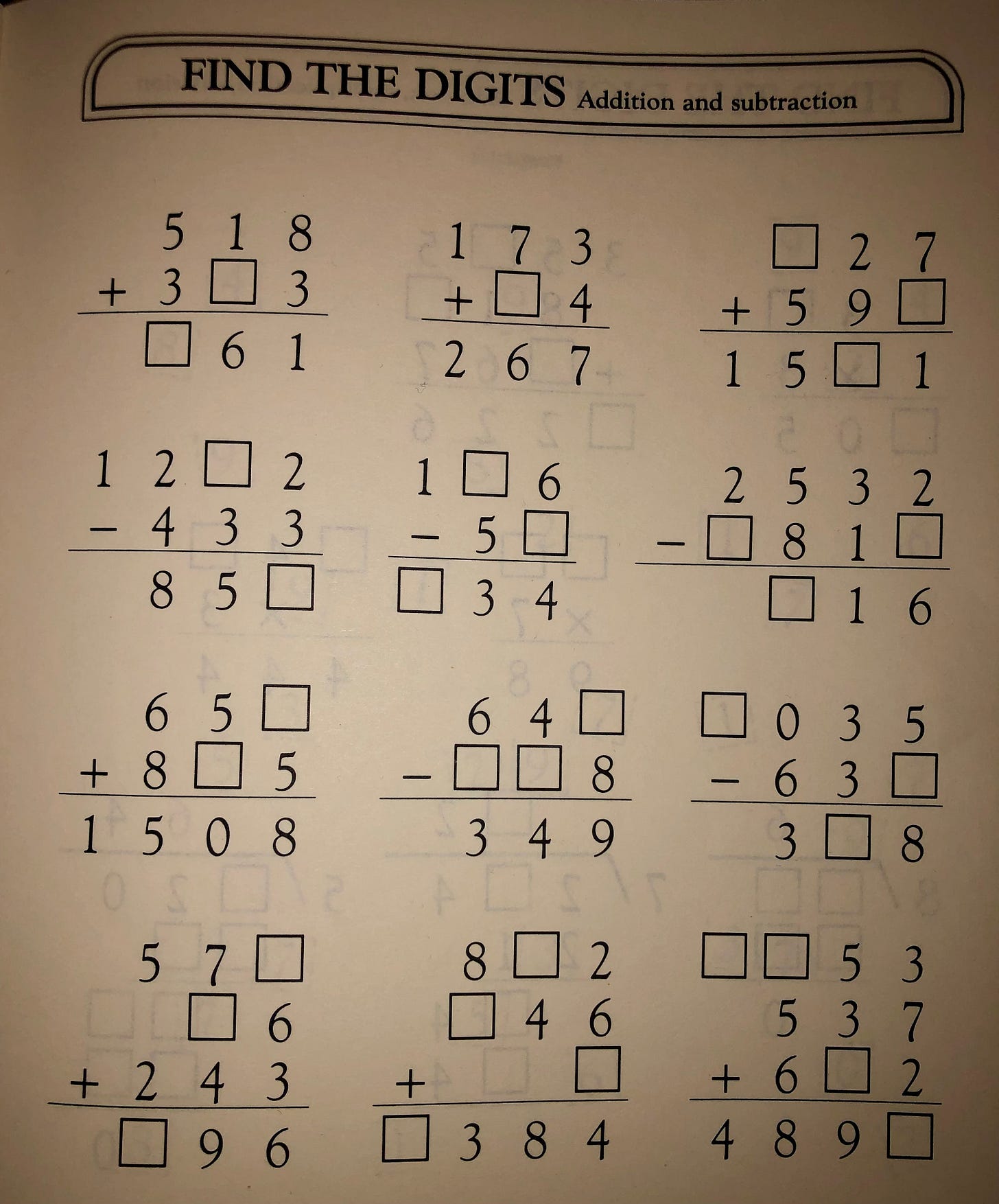No daily posts this week, but instead a quick run-down of some resources and approaches that are working for us at the moment. If you’re new here, my daughter is 8 and my son is 6.
Breaking it down with Shakespeare and spelling
Some time ago, my husband offered the children money in exchange for learning poetry by heart. They have learnt some, but not a huge amount. Mostly they’d rather be broke than learn poetry. One of the terms Henry set was that they could have £1 for every ten lines of Shakespeare learnt. £1 is a tantalising sum, but ten lines proved to be a dispiritingly high mountain to climb. They didn’t even get so far as putting on their hiking boots.
So last week I pointed out to them that £1 divided by ten lines is 10p per line. It turns out one line is a much more achievable challenge. I’ve already had to pay out 60p to my daughter and 40p to my son. They’re really enjoying it. The rules are that they have to say the whole thing from the beginning, not just the latest line, and that they have to say it over two days, to make sure it’s really stuck.
Do I love the idea of paying for learning? No. I’m not about to start paying them for sums, or for reading their books. Interestingly, introducing money hasn’t made the poetry a chore—they’re both really enjoying it, and they love the Shakespeare they’re learning. I think so long as the idea of a reward is kept in this one, discrete subject it doesn’t seem to be causing any problems. As Samuel Johnson said, “No man but a blockhead ever wrote except for money.”
wrote about the book How to Teach Your Children Shakespeare in her guest post for How We Homeschool. It’s on my list but I thought I’d save money by not buying it just yet. Although if my children keep learning their lines so fast, that could prove to be an expensive mistake.I‘ve written before about the challenges of teaching spelling to reluctant children. We do it, but it’s slow and not very rewarding work. I have a new tactic, and it’s going quite nicely. When the children are in bed, I write half a dozen spellings on the blackboard. They like anything that appears overnight, even spellings. In the morning, we look at the words, and I talk about any unexpected letters, or rules, or patterns to notice. The words stay on the board and I might point them out a couple of times during the morning. Some time after lunch we have another good look, and then I cover up the words and the children write them down. They seem to like this approach because it feels very manageable (I am careful to make most of the words easy). They even quite like the ‘test’ nature of me covering up the words, which is surprising because I have been striving to avoid the feel of a spelling test for months.
Nothing in homeschool seems to last forever, so I don’t expect this will be our spelling method for the next five years, but it’s working for now, and that has to be a good thing.
Two maths activities that work well together
This week we played a Math for Love game called Broken Calculators. You’re given a target number, and you have to work out how to make the imaginary calculator display that number. But two (or more) of the buttons are broken. For example, how would you make a calculator display 11, without using the numbers 3 or 1? You can’t do 10+1 or 12-1, because there’s no 1. But you could do 6+7, for example. I like the game because there’s not just one correct answer, and even invalid answers can help you get closer to acceptable ones. And you can make it as challenging as your child is ready for. Read more details on the Math for Love website here (it’s free).
A complimentary activity is Find the Digits from Family Math. This sets out sums using the column method, but with numbers missing. You have to work out what numbers go where. My children found it harder than I expected, but it was a great way to practise thinking about place value, and like Broken Calculators you have to try things out and adjust as you go. I like any maths activity that isn’t just about getting to the right answer as fast as possible. Forgive the terrible photo quality.
We’ve also been reading through (very slowly) Lift the Flap Fractions and Decimals. This topic feels like such a quantum leap forward that we are taking it literally one page at a time, but I do think this series of maths books is excellent for making maths fun, clear, and engaging.
Space and Lunar New Year: Two new books
We borrowed two space books from the library recently. The first one, The Solar System: A Cosmic Adventure (Amazon suggests 7-11) was a little over our heads. Obviously space is mind-boggling, but this book was a little too mind-boggling for us. The second book was Usborne’s Lots of Things to Know About Space, which was much more at our level (recommended for 6+). The children enjoyed it so much they wanted me to read the whole 60-page book in one sitting, but after 30 pages I needed a break. It’s definitely a step up from Look Inside Space (also Usborne, recommended for 5+), but was still accessible enough to be enjoyable and comprehensible.
Another library find was a new book in a new series, Celebrations and Festivals (Quarto Books). In Lunar New Year a child called Ling takes you through her family’s preparations for the festival. Religion is one subject that I have barely covered with the children. We have Usborne’s See Inside World Religions, and I don’t think the children have voluntarily looked at it even once in 2 years. Of course, I try to teach general principles of tolerance and respect, and they know that there are different people with different beliefs, and none at all. But overall I expect the children know more about the religions of Ancient Greece, Rome, and the Norsemen than any of today’s world religions! This book was a nice, friendly introduction to Lunar New Year, and seeing it through the eyes of a child who’s part of the festivities was much more engaging than a more traditional way of laying out the facts. I’m looking forward to future books in the series: Ramadan & Eid al-Fitr, Diwali, Hanukkah, and Christmas are all planned for 2024.
A Substack for bird-watchers
Regular readers may remember my love for the Merlin app, which can identity birds from their song. And my love for the feeder watch cams run by Cornell Labs. So imagine my excitement to discover Shriek of the Week, a Substack that shares the songs of British birds! Thank you
for this excellent resource.Coming up on Friday
The next special guest on How We Homeschool will be Amy Fischer, a Charlotte Mason devotee and homeschooling mother of three boys, who writes at Around the Thicket and has her own podcast, on Charlotte Mason and home ed, Thinking Love. Don’t miss it!
Thanks for reading. If you’re not subscribed, sign up for free and never miss a post. Subscribers get regular ‘How we homeschooled today’ updates, guest posts from homeschoolers around the world, and plenty of good book and resource recommendations.






I’m considering using a payment system to motivate my boys in their spelling: 10p per word that can be correctly spelled in a follow-up test after misspelling it the first time…?!
Thanks for mentioning How to Teach Your Children Shakespeare again! I had made a note of it when it was mentioned in the guest post and then promptly forgot. We don't homeschool, but I get so much value from following your substack for supplemental activities and lessons. And I just reserved How to Teach Your Children Shakespeare (as well as a complete works, Lord knows where ours is, and a DVD of RSC plays) at the library!